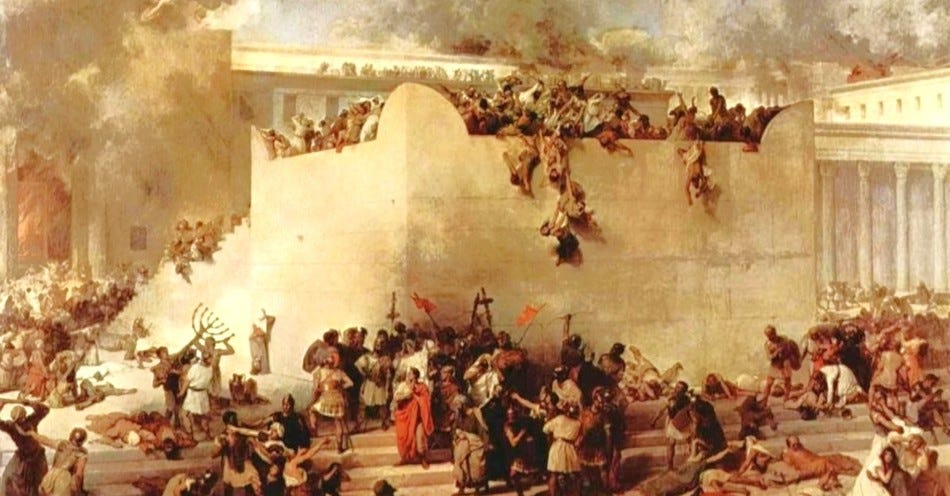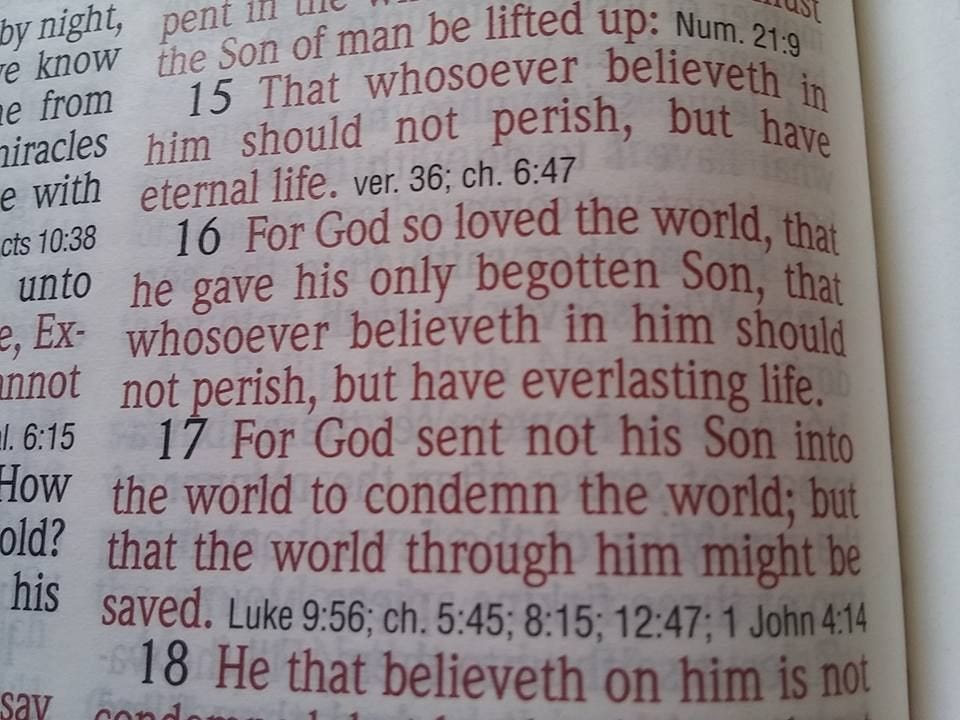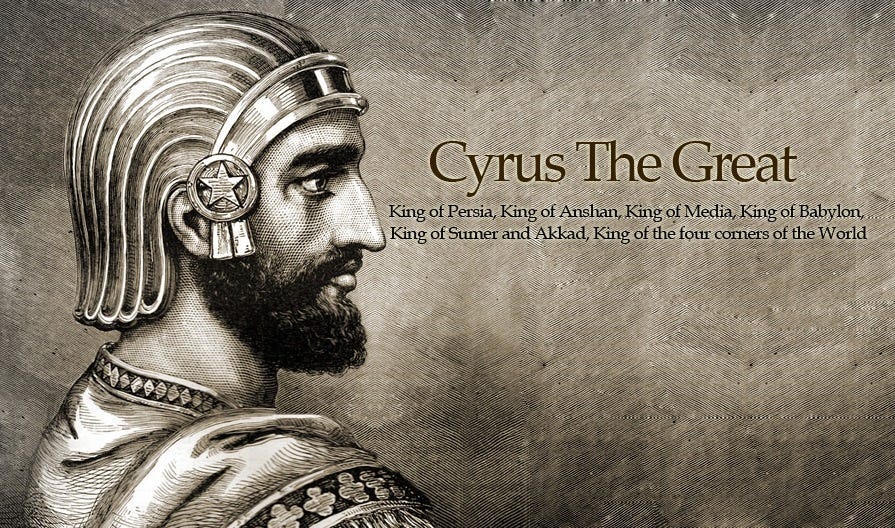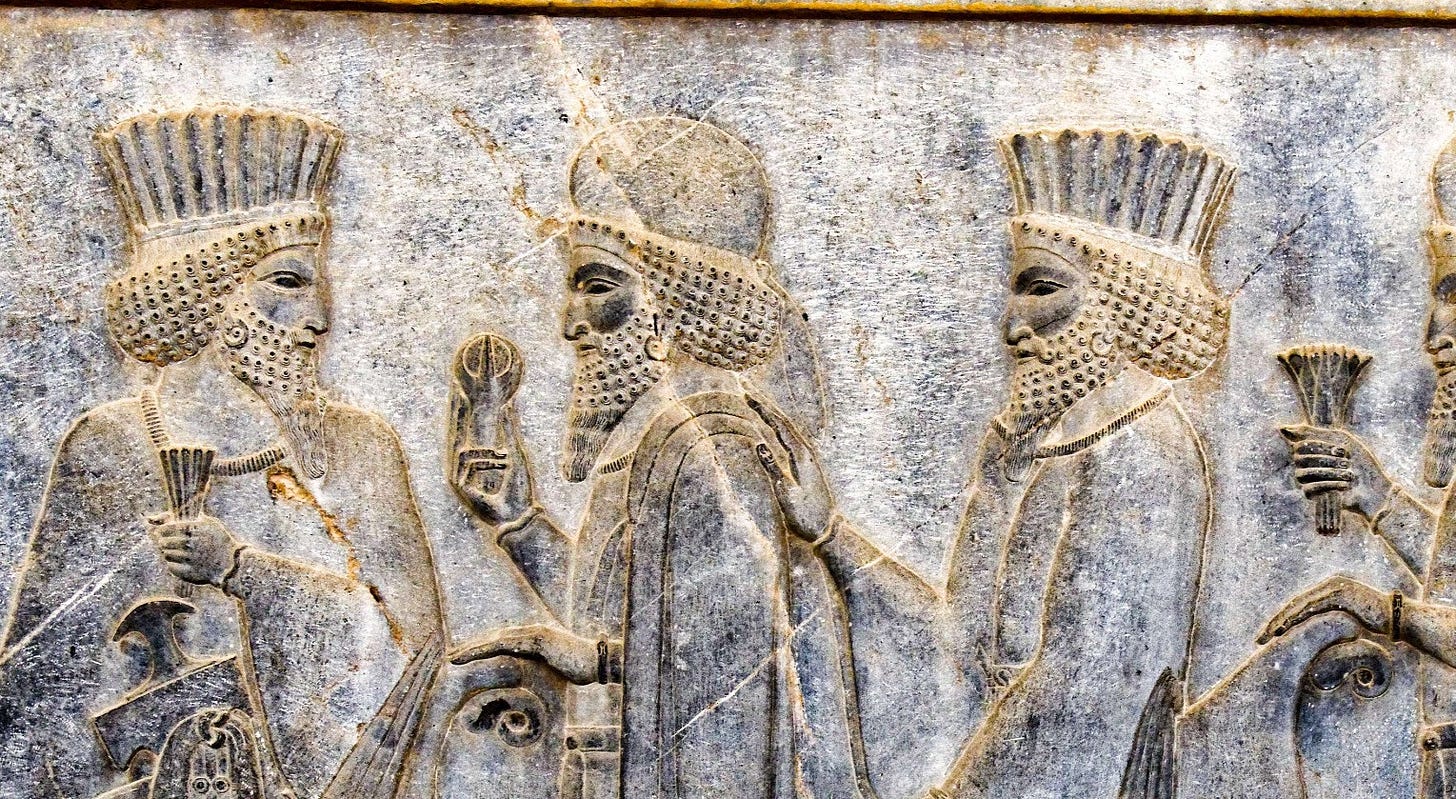Study on Daniel 9:24-26 "Seventy weeks are determined upon thy people and upon thy holy city..."
MP3 article voiceover included.
I would like to start by quoting from this passage of scripture:
Daniel 9:24 "Seventy weeks are determined upon thy people and upon thy holy city, to finish the transgression, and to make an end of sins, and to make reconciliation for iniquity, and to bring in everlasting righteousness, and to seal up the vision and prophecy, and to anoint the most Holy."
So, based on what is written here, seventy weeks were determined upon the children of Israel carried into Babylon, and upon Jerusalem, and the purpose is: [1] to finish the transgression, and [2] to make an end of sins, and [3] to make reconciliation for iniquity, and [4] to bring in everlasting righteousness, and [5] to seal up the vision and prophecy, and [6] to anoint the most Holy. There are six things in this list that defines the purpose of the seventy weeks, and we also have a figure of the seventy weeks in the context of this verse:
Daniel 9:2 "In the first year of his reign I Daniel understood by books the number of the years, whereof the word of the LORD came to Jeremiah the prophet, that he would accomplish seventy years in the desolations of Jerusalem."
That was God, through Jeremiah the prophet, who said that he would accomplish seventy years in the desolations of Jerusalem, Jerusalem being the “holy city” in Daniel 9:24 which God said seventy weeks were determined upon. BTW, this is also where the bible equates seventy weeks to seventy years. The seventy years in the desolations of Jerusalem was a prefigure of the seventy weeks given in Daniel 9:24 as a prophecy of the future which was to come, what God would accomplish to: [1] finish the transgression, and to [2] make an end of sins, and to [3] make reconciliation for iniquity, and to [4] bring in everlasting righteousness, and to [5] seal up the vision and prophecy, and to [6] anoint the most Holy. But why seventy years? Remember what God told the children of Israel if they should walk contrary to him?
Leviticus 26:14-35 "But if ye will not hearken unto me, and will not do all these commandments; And if ye shall despise my statutes, or if your soul abhor my judgments, so that ye will not do all my commandments, but that ye break my covenant: … 21 And if ye walk contrary unto me, and will not hearken unto me; I will bring seven times more plagues upon you according to your sins… 27 And if ye will not for all this hearken unto me, but walk contrary unto me… 32 And I will bring the land into desolation: and your enemies which dwell therein shall be astonished at it. 33 And I will scatter you among the heathen, and will draw out a sword after you: and your land shall be desolate, and your cities waste. 34 Then shall the land enjoy her sabbaths, as long as it lieth desolate, and ye be in your enemies’ land; even then shall the land rest, and enjoy her sabbaths. 35 As long as it lieth desolate it shall rest; because it did not rest in your sabbaths, when ye dwelt upon it."
These words were made known to the children of Israel in the time of Moses. God has forewarned that the things in this passage of scripture would happen to the children of Israel if they would not hearken unto him and choose to walk contrary to his words, that he shall bring the land into desolation and would scatter them among the heathen so that the land gets to enjoy her sabbaths. Then, in 2 Chronicles 36:20-21, we read how God realized his judgment pronounced on Judah by the mouth of Jeremiah:
2 Chronicles 36:20-21 "And them that had escaped from the sword carried he away to Babylon; where they were servants to him and his sons until the reign of the kingdom of Persia: To fulfil the word of the LORD by the mouth of Jeremiah, until the land had enjoyed her sabbaths: for as long as she lay desolate she kept sabbath, to fulfil threescore and ten years."
This passage of scripture tells us that because of what the children of Israel had repeatedly done: they had not hearken unto God’s words and had chosen to walk contrary to his ways, they were scattered among the heathen so that their land shall be desolate. As a result, they were carried into Babylon and had to remain there for seventy years, until the land had enjoyed her sabbaths. That was the purpose of their carrying away into Babylon, so that the land gets to enjoy her sabbaths according to Leviticus 26:14-35. The end of the seventy years was marked by the reign of the kingdom of Persia, which was to replace the kingdom of Babylon. The seventy years of desolation was not just a judgment from God on the children of Israel, it was also something that God must accomplish in order to make a new covenant with the house of Israel, and with the house of Judah:
Jeremiah 31:31-34 "¶ Behold, the days come, saith the LORD, that I will make a new covenant with the house of Israel, and with the house of Judah: 32 Not according to the covenant that I made with their fathers in the day that I took them by the hand to bring them out of the land of Egypt; which my covenant they brake, although I was an husband unto them, saith the LORD: 33 But this shall be the covenant that I will make with the house of Israel; After those days, saith the LORD, I will put my law in their inward parts, and write it in their hearts; and will be their God, and they shall be my people. 34 And they shall teach no more every man his neighbour, and every man his brother, saying, Know the LORD: for they shall all know me, from the least of them unto the greatest of them, saith the LORD: for I will forgive their iniquity, and I will remember their sin no more."
The sabbath is the seventh day (Exodus 16:26) and last day of a week, and if we were to go back to Genesis 2:2, we will read that after God ended his work in Creation, he rested on the seventh day from all the work which he had made. He also blessed the seventh day, and sanctified it: because that in it he had rested from all his work which he created and made. It is the same with the children of Israel who rebelled against him, whom he caused to be carried away into Babylon so that the land gets to enjoy her sabbaths. It is God’s way to rest from all the work which he had made: to sanctify it in preparation of a new beginning. The end of the sabbath day is also the beginning of a brand new week, and that is mark by the new covenant which God said he shall bring in according to Daniel 9:24, after the seventy years of desolation when the land had enjoyed her sabbaths, “… to finish the transgression, and to make an end of sins, and to make reconciliation for iniquity, and to bring in everlasting righteousness, and to seal up the vision and prophecy, and to anoint the most Holy.” That will be through the Son of God, Jesus of Nazareth, which according to John 3:16 “For God so loved the world, that he gave his only begotten Son, that whosoever believeth in him should not perish, but have everlasting life.”
Hebrews 8:6-13 elaborates on the new covenant that Jeremiah 31:31-24 talked about: how the old covenant was a foreshadow of the new covenant and how that God hath made a new and better covenant which was established upon better promises to replace the old, which decayeth, waxeth old and is ready to vanish away.
1 Timothy 2:5 "For there is one God, and one mediator between God and men, the man Christ Jesus;"
Hebrews 8:6 and 12:24 are witnesses to this verse, which tells us that Jesus Christ is now the mediator of the new covenant, and the only mediator between God and men. How does the new covenant work? Expounding from Daniel 9:24:
“to finish the transgression.”
“to make an end of sins.”
Hebrews 9:26 "For then must he often have suffered since the foundation of the world: but now once in the end of the world hath he appeared to put away sin by the sacrifice of himself."
Hebrews 10:12 "But this man, after he had offered one sacrifice for sins for ever, sat down on the right hand of God;"
First and foremost, sin is the transgression of the law. We cannot save ourselves out of the sins we have committed. For this reason, Jesus came to finish the transgression, and to make an end of sins by the sacrifice of himself, whereby he offered up himself as the one and only sacrifice for sins for ever.
“to make reconciliation for iniquity.”
Romans 5:10 "For if, when we were enemies, we were reconciled to God by the death of his Son, much more, being reconciled, we shall be saved by his life."
Hebrews 2:17 "Wherefore in all things it behoved him to be made like unto his brethren, that he might be a merciful and faithful high priest in things pertaining to God, to make reconciliation for the sins of the people."
Paul tells us in Romans 5:10 that we were once enemies of God, but are now reconciled to God the Father by the death of his Son. Hebrews 2:17 tells us that for this reason, Jesus was made like unto his brethren so as to make reconciliation for the sins of the people by his death, and being reconciled, we shall be saved by his life.
“to bring in everlasting righteousness.”
Romans 10:4 "For Christ is the end of the law for righteousness to every one that believeth."
Everlasting righteousness cannot come from us doing what is required of the law, which is what the old covenant was about. Paul tells us in this verse that Jesus is the end of the law for righteousness to every one that believeth. He is come to bring in everlasting righteousness for whosoever believeth in him.
“to seal up the vision and prophecy.”
Hebrews 9:28 "So Christ was once offered to bear the sins of many; and unto them that look for him shall he appear the second time without sin unto salvation."
The writer of Hebrews tells us that Christ came the first time to bear the sins of many, and this verse also tells us that he shall appear the second time, in that sense, to seal up the vision and prophecy of what is written in the scripture concerning him.
“to anoint the most Holy.”
Luke 4:18 "The Spirit of the Lord is upon me, because he hath anointed me to preach the gospel to the poor; he hath sent me to heal the brokenhearted, to preach deliverance to the captives, and recovering of sight to the blind, to set at liberty them that are bruised,"
Acts 4:27 "For of a truth against thy holy child Jesus, whom thou hast anointed, both Herod, and Pontius Pilate, with the Gentiles, and the people of Israel, were gathered together,"
Acts 10:38 "How God anointed Jesus of Nazareth with the Holy Ghost and with power: who went about doing good, and healing all that were oppressed of the devil; for God was with him."
Hebrews 1:9 "Thou hast loved righteousness, and hated iniquity; therefore God, even thy God, hath anointed thee with the oil of gladness above thy fellows."
These four verses tell us that God the Father hath anointed Jesus of Nazareth with the Holy Ghost and with power to do his will as it is written in scripture. That, in the words of Daniel 9:24, is to anoint the most Holy: Jesus, the Son of man, being the “most holy.” BTW, this term “most Holy” is found exactly 46 times in the 1611 King James Bible, 46 being the number of chromosomes in the human body, and Paul tells us that our body is the temple of God. Daniel continues in the next verse:
Daniel 9:25 "Know therefore and understand, that from the going forth of the commandment to restore and to build Jerusalem unto the Messiah the Prince shall be seven weeks, and threescore and two weeks: the street shall be built again, and the wall, even in troublous times."
“Seven weeks, and threescore and two weeks” is sixty-nine weeks. From Daniel 9:24 in the earlier part of this article, we have established how the seventy years was a prefigure of the seventy weeks. Therefore, sixty-nine weeks may be equated to sixty-nine years: from the going forth of the commandment to restore and to build Jerusalem unto the Messiah the Prince would be sixty-nine years. The street shall be built again, and the wall, even in troublous times. Moreover, if we look at:
John 2:20 "Then said the Jews, Forty and six years was this temple in building, and wilt thou rear it up in three days?"
This verse tells us that the temple alone took forty and six years to build which BTW, is a reference to the temple of our body, the temple of God, with its 46 chromosomes.
2 Chronicles 36:22-23 "¶ Now in the first year of Cyrus king of Persia, that the word of the LORD spoken by the mouth of Jeremiah might be accomplished, the LORD stirred up the spirit of Cyrus king of Persia, that he made a proclamation throughout all his kingdom, and put it also in writing, saying, 23 Thus saith Cyrus king of Persia, All the kingdoms of the earth hath the LORD God of heaven given me; and he hath charged me to build him an house in Jerusalem, which is in Judah. Who is there among you of all his people? The LORD his God be with him, and let him go up."
The same message was also repeated in Ezra 1:1-3. The end of the seventy years of the carrying away of the children of Israel into Babylon was marked by the reign of the Kingdom of Medes and Persia, which replaced the Babylonian empire. In the first year of Cyrus king of Persia, the LORD stirred up his spirit and caused him to make a proclamation throughout all his kingdom, that the LORD hath charged him to build him an house in Jerusalem, which was in Judah. That, according to Daniel 9:25 “from the going forth of the commandment to restore and to build Jerusalem unto the Messiah the Prince shall be seven weeks, and threescore and two weeks.” From the point when Cyrus king of Persia made the proclamation to build and restore Jerusalem to the completion of the temple and the street, it would be another sixty-nine years, and those were “troublous times” (Daniel 9:25) and we can also read from the book of Ezra in this passage of scripture:
Ezra 4:4-5 "Then the people of the land weakened the hands of the people of Judah, and troubled them in building, 5 And hired counsellors against them, to frustrate their purpose, all the days of Cyrus king of Persia, even until the reign of Darius king of Persia."
Daniel continues in the next verse:
Daniel 9:26 "And after threescore and two weeks shall Messiah be cut off, but not for himself: and the people of the prince that shall come shall destroy the city and the sanctuary; and the end thereof shall be with a flood, and unto the end of the war desolations are determined."
This verse was a prophecy that after “threescore and two weeks,” or sixty-two weeks, shall the Son of man Jesus Christ be cut off, not for himself, but for whosoever believeth in him. The words in this verse were in fact foretelling of Israel’s rejection of their King, which led to his crucifixion. The term “cut off” was used in the Old Testament, such as in Genesis 17:14 “cut off from his people.” At the cross, Jesus was “cut off” because of our sins.
Matthew 27:46 "And about the ninth hour Jesus cried with a loud voice, saying, Eli, Eli, lama sabachthani? that is to say, My God, my God, why hast thou forsaken me?"
Jesus was forsaken by God because of our sins. Peter tells us in 1 Peter 2:24 that he bare our sins in his own body on the tree, that we, being dead to sins, should live unto righteousness: by whose stripes we were healed. Paul tells us in Galatians 3:13-14 “for it is written, Cursed is every one that hangeth on a tree.” That was Paul making a reference to Deuteronomy 21:22-23 “for he that is hanged is accursed of God.” Jesus has not committed a sin worthy of death. The bible tells us in 1 Peter 2:22 that he did no sin, neither was guile found in his mouth. Yet, he was put to death and his body was hung on a tree.
Galatians 3:13-14 "Christ hath redeemed us from the curse of the law, being made a curse for us: for it is written, Cursed is every one that hangeth on a tree: 14 That the blessing of Abraham might come on the Gentiles through Jesus Christ; that we might receive the promise of the Spirit through faith."
Jesus was made a curse for us, so that the blessing of Abraham might come on us through him, that we might receive the promise of the Spirit through faith. That was what the new covenant is about in a nutshell, and I strongly encourage you to search out the scriptures by yourself, to know and understand how we might receive the promise of the Spirit through faith in every word of God in the 66 books of the Holy Bible. Going back to Daniel 9:26 which tells us that after sixty-two weeks shall the Messiah be cut off, we know from hindsight that this would only take place a few hundred years later, in the Roman empire. If we go by each day for a year based on what we read in Numbers 14:34 “each day for a year,” we end up with 434 years. Therefore, it would be another 434 years from the point where Jerusalem was restored to the crucifixion of Jesus. The common understanding is that Jesus was crucified in AD 33.
BTW, this 400+ years corresponds to what bible historians refer to as the “Intertestamental Period” between the Old Testament ending at the book of Malachi and the New Testament beginning at the book of Matthew. The Intertestamental Period was also known by some members of the Protestant community as the “400 Silent Years,” because during this long period of time, God revealed nothing new to his people. I understand that there are many disputations on the year of Christ’s crucifixion, and I am not going to be strict on this, but suppose Christ was crucified in AD 33, if we were to count when the children of Israel were carried into Babylon, that would be 70 + 69 + 434 = 573 years from AD 33, or 540 BC. I understand that this number might not tally exactly with that derived from some historical studies which puts the captivity of Judah between 586 BC and 516 BC, but I am not here to dispute with anyone on the actual dates. I’m just here to share with you what I’ve gathered from my studies in scripture.
Daniel 9:1-2 "In the first year of Darius the son of Ahasuerus, of the seed of the Medes, which was made king over the realm of the Chaldeans; 2 In the first year of his reign I Daniel understood by books the number of the years, whereof the word of the LORD came to Jeremiah the prophet, that he would accomplish seventy years in the desolations of Jerusalem."
Going back to Daniel 9:24 “Seventy weeks are determined upon thy people and upon thy holy city…” Notice that seventy weeks “are” (not “were”). Therefore, the seventy weeks are to be determined from the point when Daniel received his vision, but notice that it happened in the first year of Darius the son of Ahasuerus, and in the first year of of his reign. That would have been some years after the Kingdom of Medes and Persia succeeded the Babylonian empire. Historical sources have it that Darius the son of Ahasuerus was the nephew of Cyrus the Great who eventually succeeded his uncle’s throne. I can’t be sure if that was the case, but from what we read in the book of Ezra:
Ezra 4:4-6 "Then the people of the land weakened the hands of the people of Judah, and troubled them in building, 5 And hired counsellors against them, to frustrate their purpose, all the days of Cyrus king of Persia, even until the reign of Darius king of Persia. 6 And in the reign of Ahasuerus, in the beginning of his reign, wrote they unto him an accusation against the inhabitants of Judah and Jerusalem."
There are three kings of Persia mentioned here, in the order of succession: [1] Cyrus, [2] Ahasuerus and [3] Darius. Darius was the son of Ahasuerus according to Daniel 9:1. Remember in the first year of Cyrus the king of Persia, he made a proclamation throughout all his kingdom to restore and to build Jerusalem? Ezra tells us in these verses that a group of malicious people mounted obstacles against the children of Israel and troubled them in the restoration and building of Jerusalem, to frustrate their purpose, all the days of Cyrus king of Persia, even until the reign of Darius, the son of Ahasuerus. During the reign of Ahasuerus, they even wrote an accusation against the children of Israel. So, if we calculate based on 540 BC as the time when the children of Israel were carried into Babylon:
Seventy years after 540 BC would be 470 BC, when the Kingdom of Medes and Persia succeeded the Babylonian empire.
Historical sources have it that Darius was made King of Persia eight or nine years after the reign of Cyrus. Of course, no one can be sure if that was the case, but supposed there was a gap of ten years between the time when Cyrus made the proclamation to the time when Daniel received the vision in the first year of Darius, that would have been around 460 BC.
So, ten years later, in 460 BC, in the first year of Darius the son of Ahasuerus, Daniel received the vision which showed him that seventy weeks “are” (not “were”) determined upon the children of Israel and Jerusalem.
Seventy weeks is 70 x 7 = 490 days. If we go by Numbers 14:34 “each day for a year,” and counting forward four hundred and ninety years from 460 BC, we arrive at AD 30. That would be the year when Jesus started his ministry.
The bible tells us in this verse:
Luke 3:23 "And Jesus himself began to be about thirty years of age, being (as was supposed) the son of Joseph, which was the son of Heli,"
This verse tells us that Jesus began his ministry at about the age of thirty. So, how many years did his ministry last? The answer may be found in this parable about the fruitless fig tree:
Luke 13:6-10 "¶ He spake also this parable; A certain man had a fig tree planted in his vineyard; and he came and sought fruit thereon, and found none. 7 Then said he unto the dresser of his vineyard, Behold, these three years I come seeking fruit on this fig tree, and find none: cut it down; why cumbereth it the ground? 8 And he answering said unto him, Lord, let it alone this year also, till I shall dig about it, and dung it: 9 And if it bear fruit, well: and if not, then after that thou shalt cut it down. 10 And he was teaching in one of the synagogues on the sabbath."
Notice in verse 10 that he was teaching in one of the synagogues on sabbath when he spoke this parable. In this, he was directing at the Jews that “these three years I come seeking fruit on this fig tree, and find none.” The same idea was also found in John 1:11 “He came unto his own, and his own received him not.” If the Jews had received him, they would have produced fruit. Therefore, Jesus’s ministry on earth must have lasted for about three years. Counting from AD 30, that means he would have been crucified around AD 33, at about the age of thirty-three. When Jesus was crucified, that was what Daniel 9:26 tells us, that the “Messiah be cut off, but not for himself.” Under the new covenant, we now have a mediator between God and men, Christ being our High Priest, the mediator of the new covenant to make reconciliation for our sins that we might receive the promise of eternal inheritance.









“12 Restore unto me the joy of thy salvation; and uphold me with thy free spirit." Psalms 51:12
Link to related articles:
Study on Daniel 9:24-26 "Seventy weeks are determined upon thy people and upon thy holy city..."
https://willyealsogoaway.substack.com/p/study-on-daniel-924-26-seventy-weeks
Study on Daniel 9:26 "... unto the end of the war desolations are determined."
https://willyealsogoaway.substack.com/p/study-on-daniel-926-unto-the-end
Study on Daniel 9:27 "he shall confirm the covenant with many for one week..."
https://willyealsogoaway.substack.com/p/study-on-daniel-927-he-shall-confirm